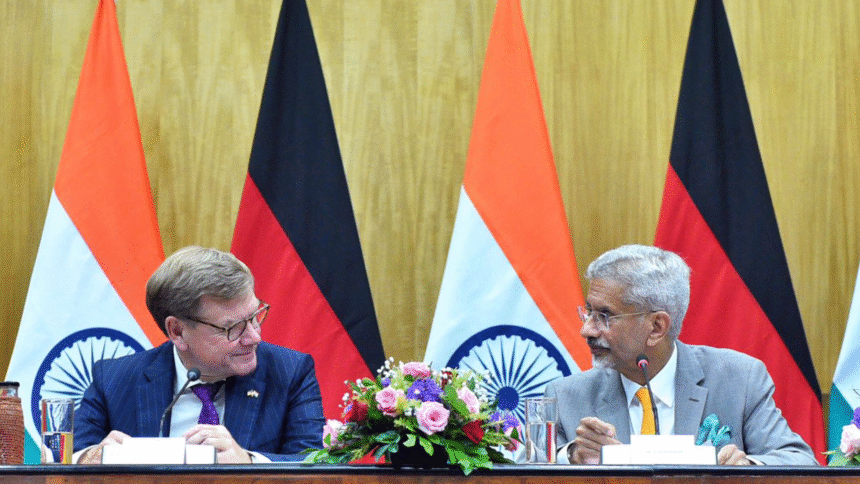Berlin: Germany has signaled a significant recalibration in its foreign policy towards Asia, placing India at the center of its long-term strategic vision. The shift became evident during the recent visit of German Foreign Minister Johann Wadephul to New Delhi (September 1–3), where he described India as “equivalent to Asia” for Berlin and the European Union.
This rhetoric was not mere diplomacy. It was backed by concrete moves that indicate Berlin’s recognition of India as a trusted partner across three strategic domains: technological sovereignty, economic diversification, and Indo-Pacific engagement.
Submarine Deal Under Project 75(I)
One of the most visible outcomes of this shift is the clearance of a submarine project worth nearly INR 70,000 crore under Project 75(I). The deal involves Germany’s ThyssenKrupp Marine Systems (TKMS) and India’s Mazagon Dock Shipbuilders, strengthening India’s defense manufacturing base while boosting Germany’s presence in the Indian defense sector.
Analysts see this as a decisive step in India’s efforts to reduce dependency on a single supplier nation and to push forward indigenous naval capability.
Technology and Innovation Partnerships
Wadephul’s visit also highlighted Berlin’s keen interest in India’s innovation ecosystem. During his trip, he visited Bengaluru and interacted with scientists at ISRO, underlining Germany’s intent to collaborate in advanced sectors such as artificial intelligence, space technology, and digital research.
According to a report in The Economic Times, the German minister praised India’s innovation hubs and stressed the importance of building joint research partnerships in future-ready technologies. Germany’s call for “technological sovereignty” resonates with India’s push for Atmanirbhar Bharat, making their partnership mutually reinforcing.
Expanding Trade and Economic Ties
Trade was another pillar of the discussions. Both sides noted that bilateral trade had already touched nearly €50 billion last year, with aspirations to double this figure in the coming years. Germany also reiterated support for the long-pending India–EU Free Trade Agreement (FTA), alongside commitments to ease regulatory bottlenecks and enhance export clearance mechanisms.
India, in turn, assured Germany of addressing concerns related to the ease of doing business, mobility of skilled talent, and regulatory predictability, making the economic relationship more sustainable.
Indo-Pacific Priorities
Perhaps most importantly, Germany underscored its growing role in the Indo-Pacific — a region marked by volatility and competition over maritime routes. In the joint press conference, Wadephul and External Affairs Minister S. Jaishankar discussed freedom of navigation, regional stability, and the need for cooperation in maintaining open sea lanes.
This reflects Berlin’s recognition that India is a key Indo-Pacific actor whose engagement is vital for ensuring stability in an increasingly contested region.
Global Context
As noted by The Economic Times, Germany’s renewed outreach comes at a time when Europe is seeking to reduce over-dependence on China and diversify its strategic partnerships in Asia. By strengthening ties with India — the world’s fifth-largest economy and a leading democracy — Berlin aims to secure both economic resilience and geopolitical balance.
Conclusion
Germany’s “awakening” to India goes beyond ceremonial diplomacy. With a landmark submarine deal, deepening technology collaborations, and shared Indo-Pacific priorities, Berlin is investing in a long-term partnership with New Delhi. For India, the message is clear: Germany and the European Union are ready to recognize India not just as an Asian partner, but as a central player in shaping the global order.


















